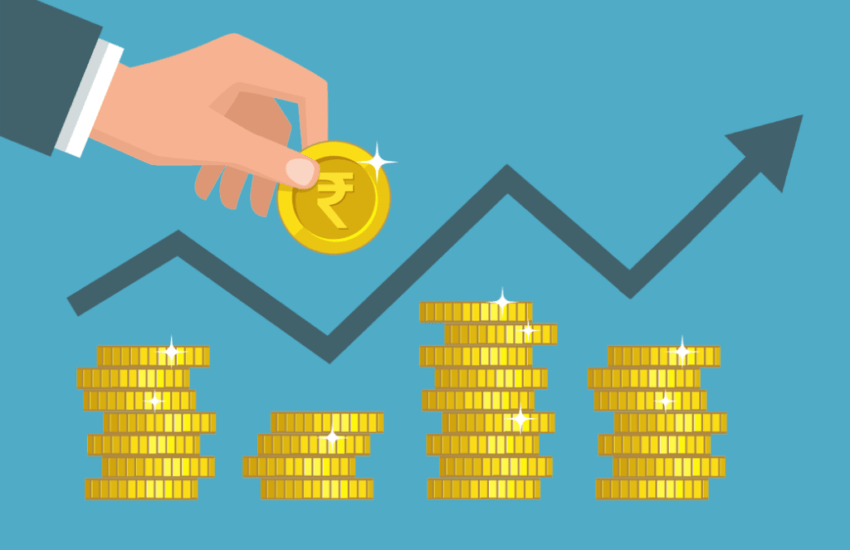When you hear the word stock market index, two names which are most likely to ring across your mind are BSE Sensex and the NSE Nifty. We also hear or read statements like “BSE Sensex went up by XYZ points” or “NSE Nifty fell by XYZ points” etc.
The BSE Sensex also referred to as the S&P Bombay Stock Exchange Sensitive Index is a free-float market-weighted stock market index comprising of 30 well-established companies which are listed on Bombay Stock Exchange. These 30 companies which together form the BSE Sensex stock market index are some of the largest and most actively traded stocks and represent various industrial sectors of the Indian economy. Similarly, the NIFTY 50 stock market index represents the weighted average of 50 Indian company stocks in various sectors.
Stock prices move up and down every second due to fluctuations in supply and demand. To understand why the stock market index keeps fluctuating let’s take a look at an example.
Hey,
Need a customized investment portfolio?
We have one for you!
Hey,
Need a customized investment portfolio?
We have one for you!
Imagine you want to buy a particular product or a commodity, something which is very short in supply. You go to the shop, ask the seller about the price and are about to hand over the money, when the person standing behind you offers a higher price. The seller tells you sorry and decides to give the product to the other person when a third person comes up and offers a much higher price. As the product has a huge demand, but very limited supply the seller decides to give it the third person for the best price.
Now few days later, to overcome the shortage the government decides to import the commodity in bulk from neighbouring countries. Once the foreign shipment arrives, there is plenty of availability in the market. Now there are plenty of sellers but limited buyers so the price of the product drops sharply. So you can see the prices of the product went up and down depending on the supply and demand in the market for it.
Similarly, when more people want to buy a particular stock, its market price will go up. On the other hand, if more people are wanting to sell a stock, its price will decrease. Apart from the supply and demand another important factor which drives the stock market index up or down is the news surrounding stocks as well as economic, political and global factors.
Factors Which Drive Stock Market Index Up Or Down
When there is negative news around stocks, people tend to sell. The negative news could be anything like poor earnings, corporate miss-management, economic, global and political uncertainty, etc. For example, if there is a terror attack on airlines, share prices of most aviation companies would go down.
Let’s take a look at some of the real-life instances where stock markets crashed due to negative events.
Post the terrorist attacks on September 11, 2001 in USA, the stock markets across the globe reacted negatively including markets in India. The S&P 500 fell by more than 14%, and airline stocks took the biggest hit.

Hey!
get your personalized portfolio of
20-25 Potential Multibagger Stocks.
Build your well-diversified portfolio
Create wealth now!
Build your well-diversified portfolio
Create wealth now!
In Sep 2018, when reports of default by IL&FS emerged, some mutual funds companies started dumping commercial papers of Dewan Housing Finance Limited (DHFL), at a discounted rate.
Termed as India’s Lehmann moment, these series of events after IL&FS default made investors jittery resulting in large scale selloff in the market especially among NBFC stocks like HDFC, Bajaj, L&T Finance Holdings, DHFL, M&M Financial Services, Indiabulls Housing Finance etc. eroding their market capitalization by a huge margin.
In 2019 post India’s air strike on terrorist camps across the border in Pakistan, rising tensions between India and Pakistan sent the benchmark BSE Sensex crashing by over 500 points in the early hours of trading.
Similarly, America’s drone attack on Iran’s top military commander in Iraq in Jan 2020 sent global markets crashing.
On the contrary, positive news can trigger people to buy stocks. Positive news includes good earnings, better corporate governance, the launch of new products, positive overall economic, global and political indicators, etc. For example, if the government decides, to reduce the GST on automobiles, it would be seen as a positive move for the auto sector and in such a situation auto stocks would go up.
Now let’s take a look at some real-life instances where stock markets went up due to positive news.
A landslide win for Narendra Modi led National Democratic Alliance (NDA) in 2019 general elections triggered a rally in the Indian stock markets on 24th May 2019 with BSE Sensex closing higher by 1.61% while NSE Nifty closed 1.60 per cent higher.
On 20th September 2019, India’s benchmark Indices the BSE Sensex and Nifty went up by over 5 per cent after Finance Minister Nirmala Sitharaman announced a reduction in corporate tax. As soon as the Finance Minister Nirmala Sitharaman announced the proposal to slash corporate tax for domestic companies to 25.75 per cent, the market capitalisation of stocks listed on BSE increased by over Rs 7 lakh crore.
To summarize in the short term, stock market indices fluctuate wildly based on the demand and supply of stocks. However, in the long term the stock prices depend on the company’s performance in terms of market share, earnings and profitability etc.
Related investing topics
Read more: About Research and Ranking.
How useful was this post?
Click on a star to rate it!
Average rating 5 / 5. Vote count: 2
No votes so far! Be the first to rate this post.


